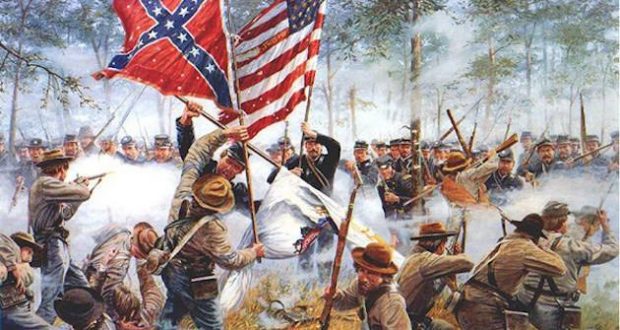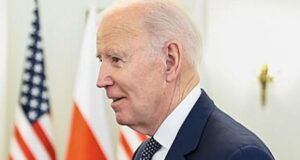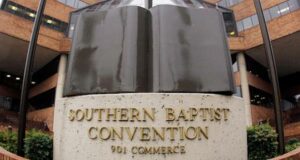With the focus on Independence Day celebrations this week, one of the most important moments in American history often goes unnoticed and even forgotten. Today marks the anniversary of the beginning three-day Battle of Gettysburg which began on July 1, 1863. This event marked in blood, sweat and a flood of tears that only the most heart-felt grief can bring, a turning point not only in the course of the American Civil War, but also the future of the United States of America.
The battle resulted in the Union victory that ended General Robert E. Lee’s second and most ambitious invasion of the northern states.
Many do not know that the Battle of Gettysburg encompassed not only the surrounding countryside, as portrayed in popular movies, but was also an urban guerilla battle as the bloodshed spread to the streets of this city as well. Accounts tell how residents were utterly terrified as they were caught in the crossfire. Soldiers on both sides occupied homes and set up positions in attics and store fronts as townspeople huddled in their cellars or in the burning heat behind the furnace of blacksmith shops.
Yet, there was only one civilian casualty. Jennie Wade, while kneading dough, was fatally shot in the back on July 3, the only civilian casualty at Gettysburg.
William Faulkner, famed American writer, detailed the battle in “Intruder in the Dust.”
“For every Southern boy fourteen years old, not once but whenever he wants it, there is the instant when it’s still not yet two o’clock on that July afternoon in 1863.”
The novelist and poet, himself a southerner, poignantly painted the scene of young men, faint for lack of water and food, anticipating battle.
Those teen-age boys referenced by Faulkner were stopped at the Angle, a wall of stone considered the last chance for victory in the U.S. Civil War.
Instead of a Confederate victory and successful invasion of the north, Union troops prevailed at Gettysburg, a turning point in the four-year war. The Civil War remains America’s greatest loss of life in battle, claiming at least 620,000 lives.
Gettysburg led to President Lincoln’s Gettysburg Address on November 19, 1863. Lincoln’s speech is considered one of the most important in American history. The Republican president, known at the time as a clumsy orator, used the speech to begin a healing process between the red and blue states. Just like today, with voting patterns showing areas that are primarily democrat and others republican, so too was the country split in the 19th Century. The primarily Republican north, which had almost completely outlawed slavery and the Democrat south, with 1 out of 3 of its residents being black slaves, had gone to war over states rights.
So in that atmosphere, Lincoln, in just 272 words, invoked the principles of human equality contained in the Declaration of Independence. He connected the sacrifices of the Civil War with the desire for “a new birth of freedom,” as well as the preservation of the Union created in 1776 and its ideal of self-government or whether we would “perish from the earth.” He held that survival as the highest aim–to unify the nation once again.
The dead union soldiers at Gettysburg had laid down their lives for this noble cause, he said, and it was up to the living to confront the “great task” before them: ensuring that “government of the people, by the people, for the people, shall not perish from the earth.”
Today, while not in a state of civil war, we are in a state of incivility. Stoked by the fires of cable news ratings and party politics, average citizens are often afraid to speak their minds for fear of public lashings on Facebook, or now it would seem, in community gathering places like restaurants.
But I do not think we are as divided as a people as the talking heads would have us believe. We each still have friends and family on the opposite political side yet we have not taken up arms against our brother or neighbor. Ninety-nine percent of our citizens still find a way to disagree and still be friends. In this case, it is that one percent that gets the headlines while 99 percent learn to get along.
For that I am thankful. This week, as we commemorate the tremendous sacrifice of those who died to create our union in 1776, or to preserve our union in the Civil war, let us continue to look at what sacrifice we may make to do the same in our own communities.
Let us live up to the words of Lincoln who said at his speech at Gettysburg: “we take increased devotion to that cause for which they gave the last full measure of devotion… that we here highly resolve that these dead shall not have died in vain, that this nation, under God, shall have a new birth of freedom, and that government of the people, by the people, for the people, shall not perish from the earth.”
 Metro Voice News Celebrating Faith, Family & Community
Metro Voice News Celebrating Faith, Family & Community 









